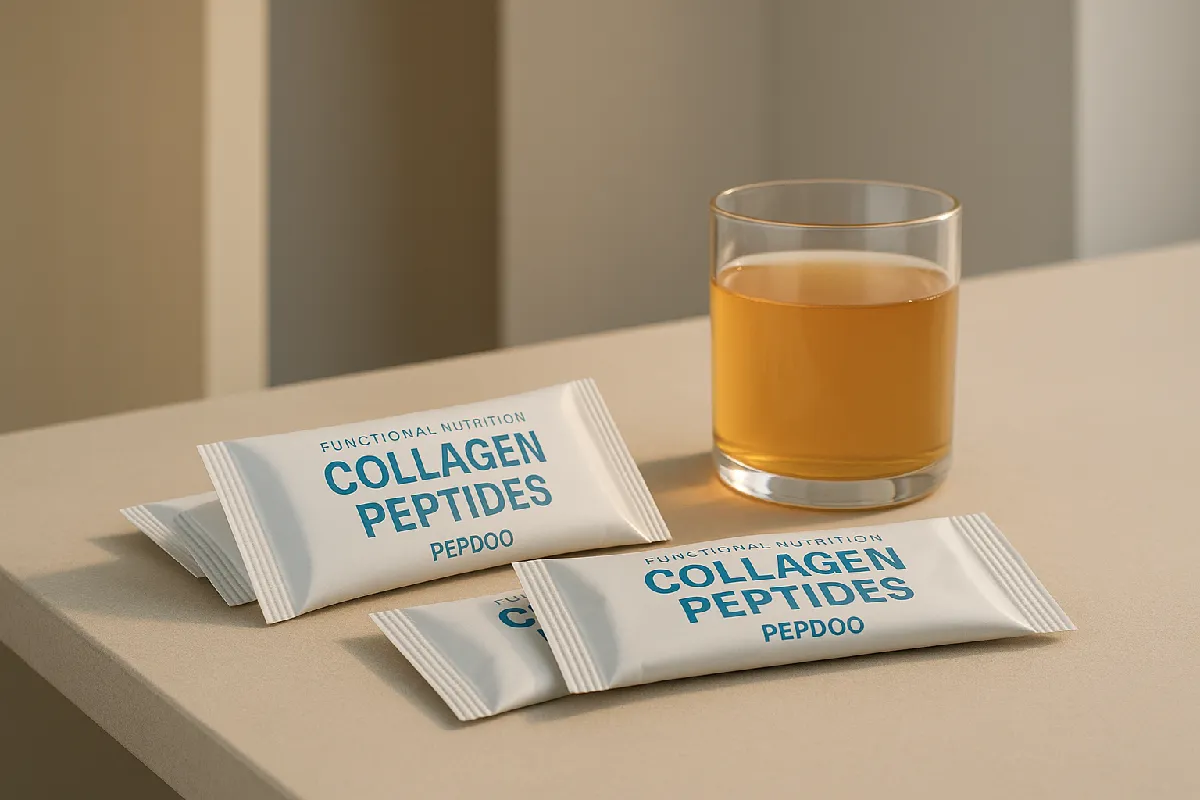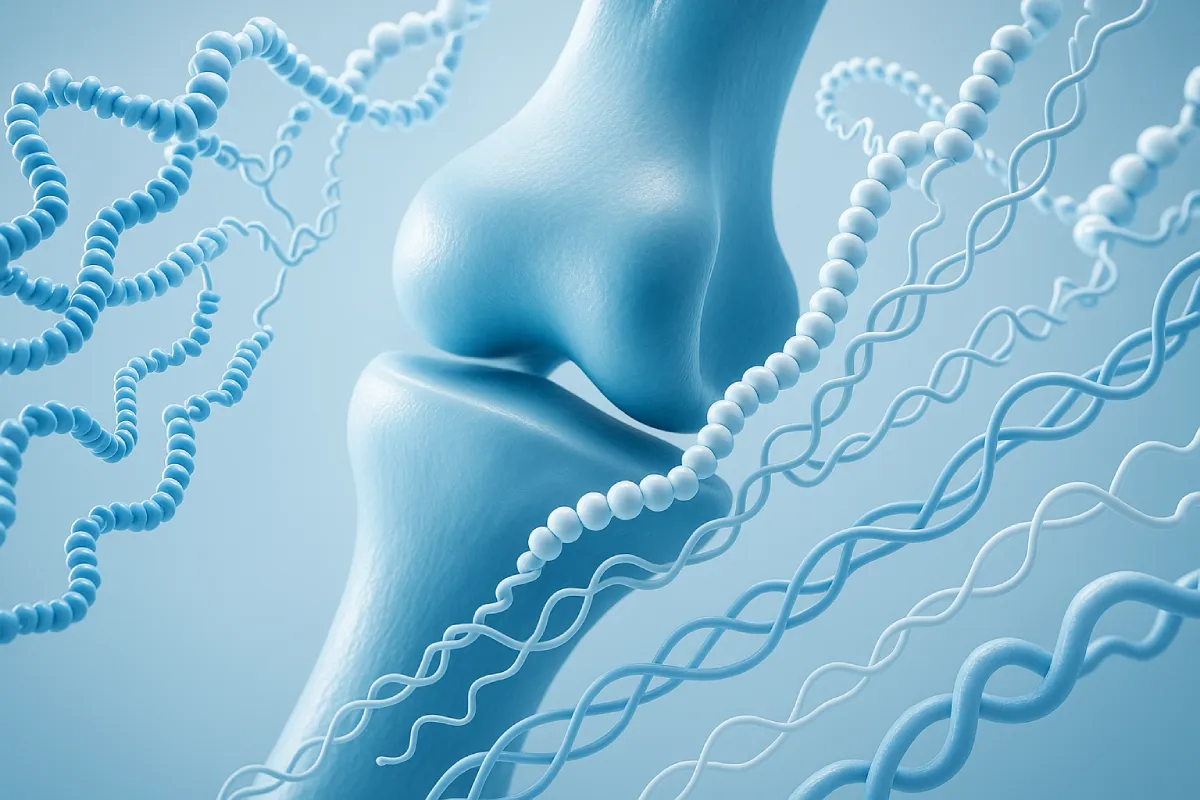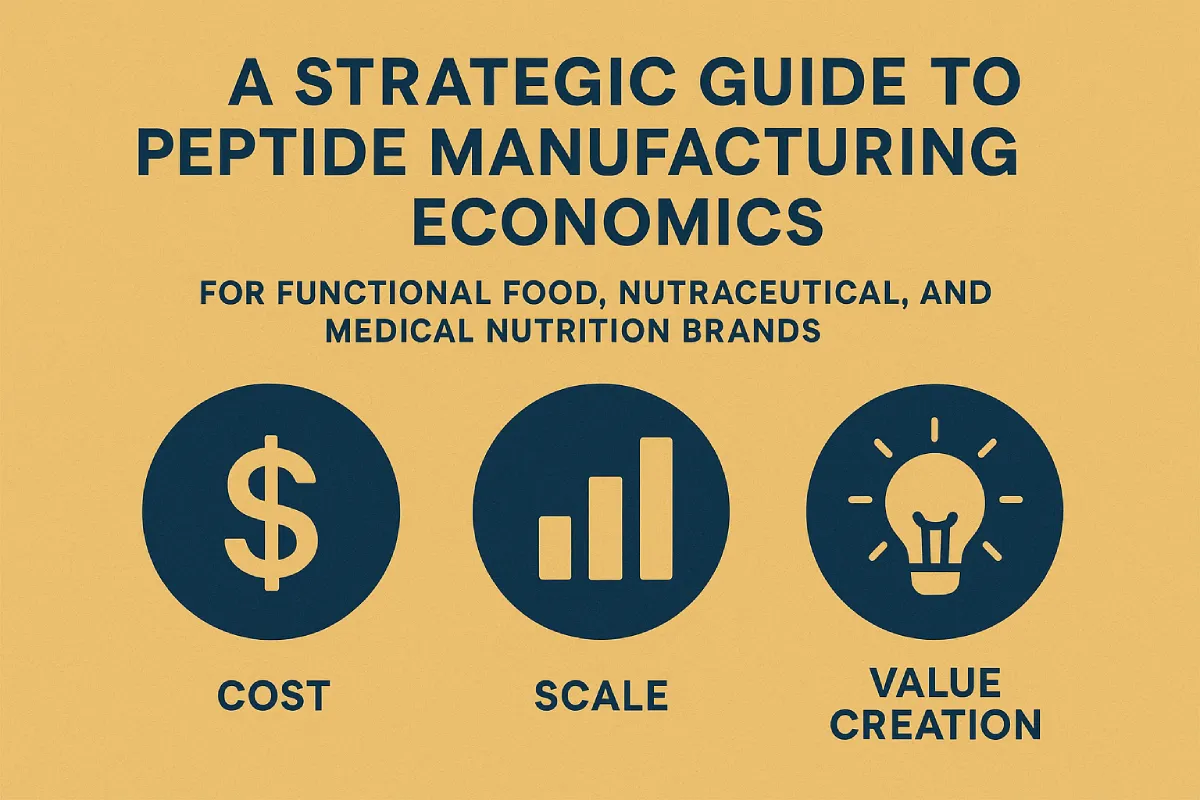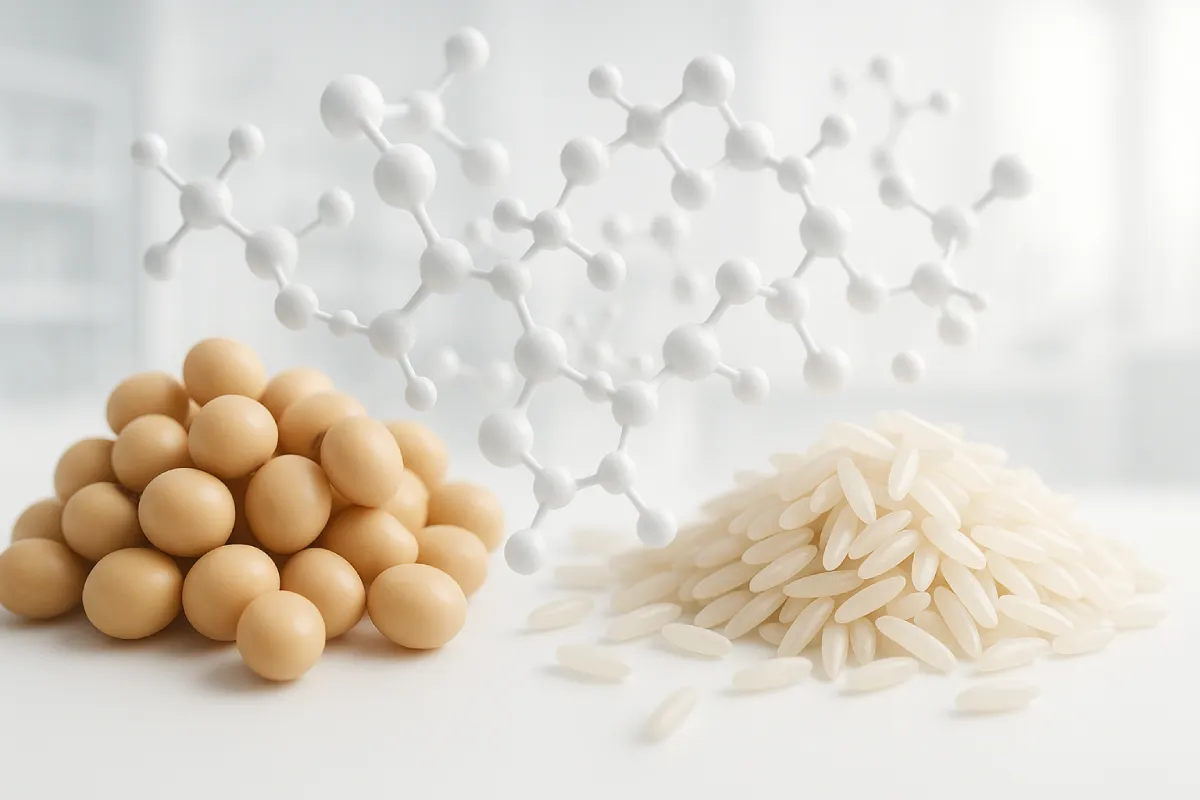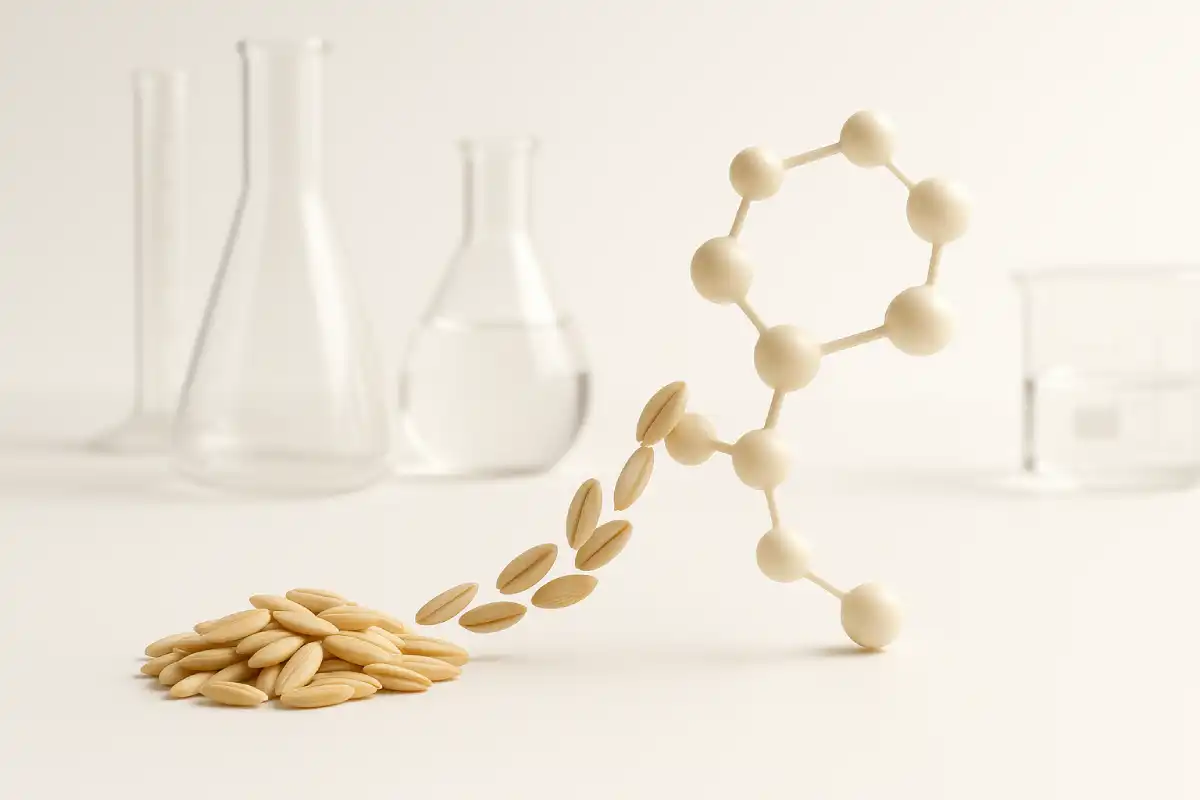Marine vs. Bovine: Tailoring Collagen Peptides to Your Brand’s Needs
As the global collagen peptide market continues to expand, choosing the right collagen source has become a strategic decision for brands, formulators, and product developers. Marine and bovine collagen peptides are the two most commonly used types across beauty, joint health, and active aging categories. While both offer unique biofunctional properties, the right choice depends on your product’s positioning, consumer expectations, formulation constraints, and supply chain considerations.
At PEPDOO®, we are a global full-category peptide manufacturer, recognized as a standard-setter in China’s functional peptide industry, holding leading positions in small-molecule peptide patents, and equipped with China’s top-tier and internationally advanced peptide production technologies.
Understanding the Origins: Source & Production
Marine collagen peptides are primarily derived from the skin and scales of cold-water fish, such as cod or tilapia. They are typically rich in Type I collagen, which is the most abundant form in human skin, tendons, and bones [1]. Due to their lower molecular weight, marine collagen peptides are known for superior absorption and rapid bioavailability.
In contrast, bovine collagen peptides are extracted from cowhide, bones, or cartilage and contain both Type I and Type III collagen. These types are associated with skin elasticity, connective tissue integrity, and joint support [2].
From a manufacturing perspective, the method of extraction, enzymatic hydrolysis, and purification are critical. At PEPDOO®, we employ multi-enzyme directional hydrolysis and low-temperature molecular separation to ensure peptides remain highly bioactive while minimizing odor, heavy metal contamination, and allergenic risk. Our proprietary fermentation-assisted deodorization techniques further enhance the sensory performance of marine collagen.
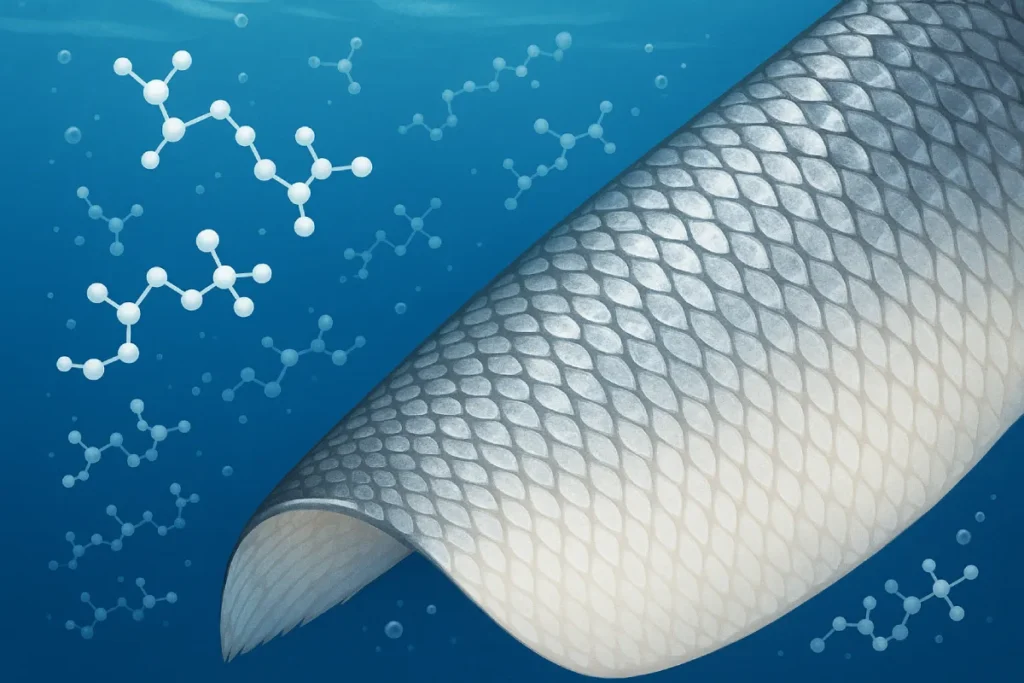
Biofunctional Focus: Skin, Joints, and Beyond
Both marine and bovine collagen peptides offer distinct physiological benefits, but their use cases often diverge based on their structure and amino acid composition.
Marine Collagen Peptide:
- Primarily Type I collagen
- Supports skin hydration, elasticity, and anti-aging
- Ideal for beauty-from-within, nutricosmetics, and premium formulations
Bovine Collagen Peptide:
- Rich in Type I and III collagen
- Supports joint mobility, cartilage regeneration, and bone health
- Widely used in sports nutrition, active aging, and mainstream functional foods
Our targeted peptide solutions are designed for application-specific outcomes. For example, we offer <500 Da marine collagen peptides for rapid absorption in beauty products, and 1500–3000 Da bovine peptides for joint and skeletal formulations.
Consumer Perception & Labeling Considerations
In today’s clean-label market, consumers are increasingly aware of ingredient origins. Marine collagen is often perceived as more “natural,” “sustainable,” or “pescatarian-friendly.” It’s also free from religious and cultural concerns, such as halal or kosher restrictions [3]. This makes it a popular choice for premium beauty or wellness products targeting conscious consumers.
On the other hand, bovine collagen is more cost-effective and versatile, making it suitable for mass-market products. While some consumers raise concerns regarding animal welfare or bovine spongiform encephalopathy (BSE), sourcing from certified suppliers and disclosing processing methods can help alleviate hesitations.
At PEPDOO®, we assist partners in meeting global regulatory and labeling requirements. As the drafting unit of Chinese functional peptide industry standards, we provide expert guidance on claims substantiation, halal/kosher compliance, and market-specific documentation.
Formulation Flexibility & Application Scope
The choice between marine and bovine collagen peptides also affects formulation design. Marine collagen, while highly bioavailable, may carry a slight fishy odor if not properly deodorized. It dissolves easily in cold water and is suitable for stick packs, powder blends, and ready-to-drink (RTD) formulations.
Bovine collagen, with its higher thermal stability, performs better in tablets, capsules, gummies, and even baked functional foods. It also blends well with other ingredients such as glucosamine, MSM, or plant-based proteins.
As a leading OEM peptide manufacturer, we offer full support from sample customization to bulk production, including technical documentation, shelf-life stability testing, and organoleptic optimization.
Cost Efficiency & Supply Chain Security
Cost and supply chain dynamics are often deciding factors in peptide sourcing. Marine collagen typically commands a higher price due to limited raw material supply and more complex deodorization processes. Its use is often reserved for premium SKUs or export-oriented markets.
Bovine collagen benefits from established supply networks, scalable raw material availability, and greater price stability. It allows brands to achieve cost-effective functionality without compromising performance.
At PEPDOO®, we operate a fully integrated collagen peptide supply chain, with traceable raw materials, GMP-certified production lines, and robust inventory systems. Our partners gain access to consistent quality, flexible MOQs, and global export compliance.
Making the Right Choice: A Practical Decision Framework
| Criteria | Marine Collagen Peptide | Bovine Collagen Peptide |
|---|---|---|
| Collagen Type | Type I | Type I & III |
| Best for | Skin, Beauty, Anti-Aging | Joints, Bones, Sports Recovery |
| Consumer Appeal | Clean-label, Pescatarian, Premium | Affordable, Versatile, Broad Appeal |
| Formulation Use | Beverages, Powders, Ampoules | Capsules, Tablets, RTD, Gummies |
| Cost Efficiency | Higher | Lower |
| Cultural Acceptance | Universal | Needs halal/kosher consideration |
At PEPDOO®, our team works closely with formulators, brand managers, and R&D teams to match the most appropriate collagen type to your product vision. Whether you’re building a beauty supplement line, a joint-health drink, or a multi-functional collagen blend, we provide tailored solutions backed by science and patented peptide technology.

Conclusion: Empowering Your Brand with the Right Collagen
Both marine and bovine collagen peptides offer compelling benefits. The optimal choice comes down to your brand’s goals, target market, and formulation strategy. Whether you seek premium marine collagen for luxury skincare supplements or versatile bovine collagen for affordable joint support, the right partner makes all the difference.
As China’s leading full-category functional peptide manufacturer, patent holder, and industry standard-setter, PEPDOO® invites you to explore our advanced collagen peptide portfolio. With global export capabilities, technical customization, and regulatory support, we help transform concepts into high-impact collagen-based products.
📩 Ready to Choose the Right Collagen for Your Brand?
Get Collagen Sample & Technical SheetFAQ
Marine collagen peptides generally have lower molecular weight (~300–500 Da) than bovine collagen peptides (~1,000 Da), which may lead to faster absorption and better bioavailability in certain applications. However, formulation matrix and delivery format also affect efficacy, so both types can be optimized with proper processing and carrier design.
For global B2B markets, sourcing from certified facilities with GMP, ISO, HACCP, and halal/kosher certifications is essential. Marine collagen may be favored in regions with bovine-related regulatory restrictions (e.g., due to BSE concerns). Traceability, species identification, and heavy metal testing are critical for marine sources.
Marine collagen is often marketed as cleaner and more sustainable, especially when derived from fish skin and scales—by-products of the seafood industry. However, bovine collagen from grass-fed, hormone-free cattle can also meet clean-label demands when transparently sourced. We support both marine and bovine collagen peptide solutions with full documentation and origin traceability.
Yes. Many brands combine types I (marine) and III (bovine) to optimize performance across skin, joint, and bone health targets. This peptide synergy approach can be customized for capsules, RTDs, or functional snacks. Our technical team offers custom blending and formulation services based on your product goals.
Typically, yes—marine collagen peptides cost more due to higher raw material prices, complex filtration processes, and seasonal availability. However, for premium skincare or beauty-from-within formulations, the ROI from marine collagen’s higher market perception can be significant.
Work with a full-category peptide manufacturer that offers in-house enzymatic hydrolysis, proprietary purification, and rigorous quality control. We are one of China’s leading small-molecule peptide innovators, with proprietary collagen technologies, industry-standard participation, and global formulation experience.
We provide molecular weight specification sheets, amino acid profiles, heavy metal and microbiological reports, as well as application guidance for tablets, RTDs, powders, gummies, and more. Our R&D team supports both single-ingredient sourcing and turnkey functional nutrition solutions.
References
- Song, H., Zhang, Y., Liu, Q., et al. (2021). Marine collagen peptides: Bioactivities and applications. Marine Drugs, 19(7), 316.
- Bello, A. E., & Oesser, S. (2006). Collagen hydrolysate for the treatment of osteoarthritis and other joint disorders: A review of the literature. Current Medical Research and Opinion, 22(11), 2221–2232.
- Grand View Research. (2024). Collagen Market Size, Share & Trends Analysis Report By Source (Bovine, Porcine, Marine), By Application, By Product, By Region, And Segment Forecasts, 2024 – 2030.


